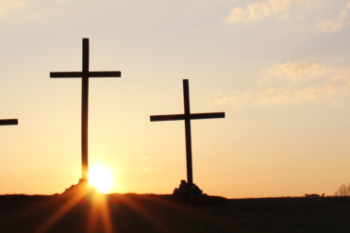Advent Worship
Since joining our church staff back in 2019, it’s usually around this time of year that I am given the opportunity to preach during the Advent season. At first, I’m always really excited. As a woman in ministry, I’m still getting used to the fact that I’m now blessed to serve in a church where I—as well as other women on staff—have regular opportunities to preach and teach, so my instinct is still to jump at every chance I’m offered. But then I begin the writing process, and it doesn’t take long for me to become overwhelmed and afraid.
Advent, the season of anticipation leading up to the birth of Jesus on Christmas day, is an important time of year. Each Sunday of Advent, we light one candle as an act of anticipation of and preparation for the anniversary of Jesus’ birth. Each candle represents a specific gift that Jesus brings into the world. Thus, in the Advent season, the task of preaching is the task of communicating the gravity of the gifts of hope, love, joy, and peace found in the miracle of the incarnation of Christ. Yet each of these gifts will strike every listener differently depending on what kind of season they are in personally in the midst of Advent.
Thus, in the Advent season, the task of preaching is the task of communicating the gravity of the gifts of hope, love, joy, and peace found in the miracle of the incarnation of Christ.
This year is no different. Our church is doing a Christmas series themed around Christmas carols, and the carol for the day that I am scheduled to preach is “O Little Town of Bethlehem” on the Sunday of Advent when we’ll light the candle that represents the peace that Jesus brings into the world. In preparing for the sermon, I was asked to give special consideration to the lyrics, “The hopes and fears of all the years are met in thee tonight.” When I was asked to write this essay, I began thinking about the hopes and fears that swirl about me when I am preparing to preach during the Advent season.
I don’t know how to prepare a sermon without pausing to consider some of the individuals in my congregation, their stories, their struggles, and what they might need to hear. These needs weigh heavier on my heart during Advent than when I preach in any other season.
There is, of course, the great joy that so many find in the traditions and celebrations leading up to Christmas each year, but there are also those heading into their first Christmas season while grieving the loss of a loved one with whom they usually share Christmas. I want to strike a balance that allows me to care for both. I know stories of those who are celebrating new additions to their families and yet I also want to sensitively consider how the stories of miraculous pregnancies in Luke 1-2 fall upon the ears of those who are struggling with infertility, have suffered miscarriages, or stillbirths. I want to embrace those who are trying to heal from a divorce, and those who are struggling with their mental health and may not feel like celebrating. Finally, I’m aware that the unchurched and the dechurched are most likely to visit our congregation during Advent, so it’s important that I preach a sermon that is welcoming, inclusive, and loving.
I don’t know how to prepare a sermon without pausing to consider some of the individuals in my congregation, their stories, their struggles, and what they might need to hear. These needs weigh heavier on my heart during Advent than when I preach in any other season.
All of these things are important to consider when preparing a sermon for a Sunday of Advent, but it is precisely because it all feels so important that at some point during my writing process, the pressure gets to me . . . and I panic. I will suddenly decide that whatever I’ve written isn’t worth preaching—primarily because it’s so dumb it couldn’t possibly be preached to my pet snail (yes, you read that right), much less to actual human beings who are counting on me to lead them in worship by communicating the gravity of the miracle of the incarnation. And then, somehow, in the middle of this panic, I have to force myself to finish writing the sermon I no longer believe in and find my way back to a peaceful place so that I can actually preach said sermon, which will culminate in the lighting of the Advent candle of peace.
So, how do I find my way back to peace from this place, where I’m completely and utterly convinced that I can’t do it? For me, the only answer lies in the acknowledgment that yes, I cannot do it—not on my own. My only way back to peace is to take all of that pressure and give it to God. I tell God I cannot do it, and God reminds me that I am just a vessel—what is asked of me is only that I do my part. I put the time and the research and the effort into writing a sermon that cares for people in my congregation, regardless of circumstance, and then my task is to simply preach it with faith that God will work through me to make it meaningful.
So when we’re feeling all the pressures of the Advent season, perhaps we need reminding that we’re only vessels, that we can only give what we’ve been given, and that doing so is an act of worship. It’s all worship.
In these moments, I can’t help but be reminded of my late professor and friend, Dr. Jamie Coates, who taught me to pray before I preach, to ask to be invisible. So I pray that I will be invisible, and that people will not see me, but see and hear God through me. This prayer is such a comfort. It helps take the pressure off me and once again reminds me that I am just a vessel.
Dr. Coates constantly taught that God has revealed Godself to us, and the only appropriate response is worship. So when we’re feeling all the pressures of the Advent season, perhaps we need reminding that we’re only vessels, that we can only give what we’ve been given, and that doing so is an act of worship. It’s all worship.
Laurel Guy is a current student at Emmanuel Christian Seminary at Milligan. View Emmanuel’s Academic Programs page here.





